There has been an uptick of chatter on Black Hat World, and WebmasterWorld forums that a Google Update might be in the works, with the 16th November widely being remarked as the date it hit. Further comments from today, 20th November, indicate that those webmasters that suffered from a drop in rankings have seen them recover today.
While this may seem like a non-event, in that users are reporting that their rankings have recovered, it could be early tests foreshadowing of something more widespread. It is not unusual for Google to carry out tests, roll them back, and then release them later after reviewing the data.
Update: As of the 24th November, the SERP trackers do not appear to support any rollback or recovery of the 16th November spike.
Update2: As of the 2nd December, it looks like Google partially reversed the effect of this update.
We will first look at the SERP trackers to ascertain the scale of the update, and whether it backs up the chatter in the SEO community.
Scale of Volatility shown in the SERP Trackers
Rank Risk Index:
The Rank Risk Index tracker shows a definite spike in volatility on the 16th November, which does give some credence to the community chatter.
It looks like it might be a little too early to know if the Google update has been reversed, at least on this chart.
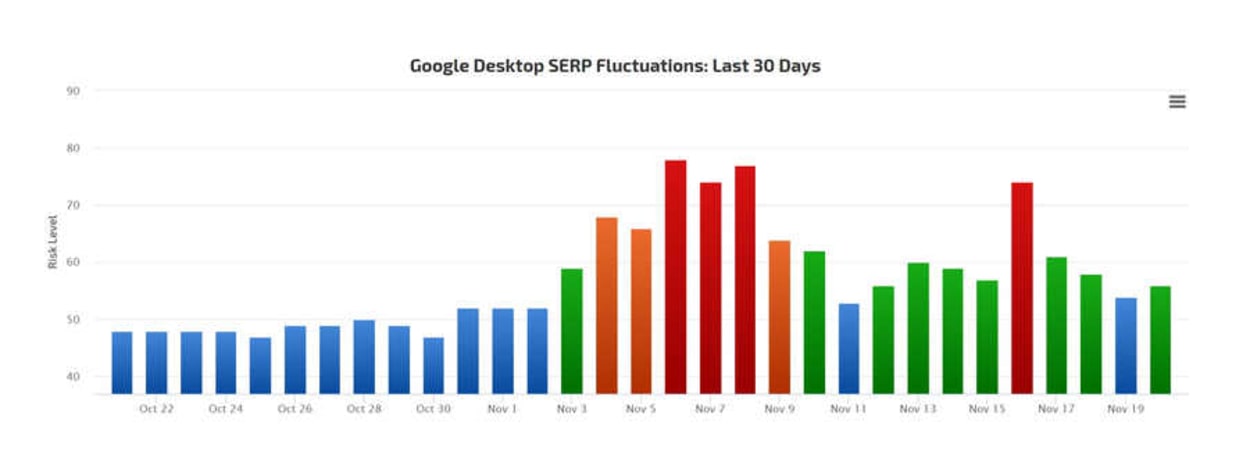
SERPmetrics:
The SERPmetrics flux index shows a clear spike on the 16th November for the US locality. What is interesting is that the flux for the UK locality happened around the 13th and 14th of November.
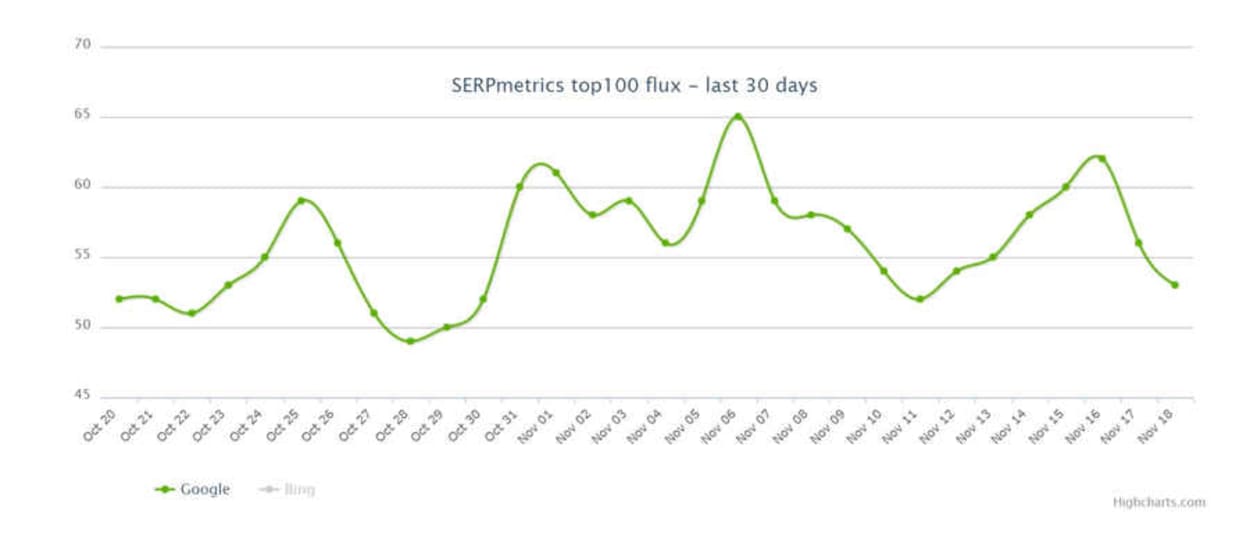
MozCast:
The MozCast weather report only shows up to the 19th November, with the spike happening on the 15th.
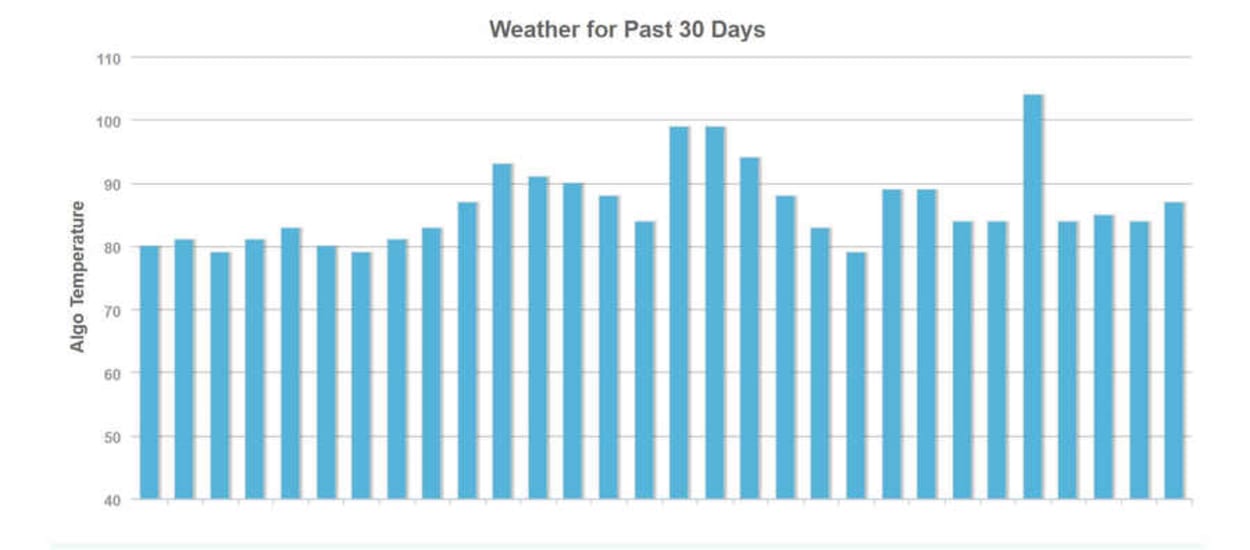
Google Grump:
Google Grump probably has the most up-to-date data, with it clearly showing a spike on the 16th and the 20th November. The last peak is slightly less than the earlier one, indicating that any Google Update may not have been rolled out in its entirety, or at least further testing is happening.
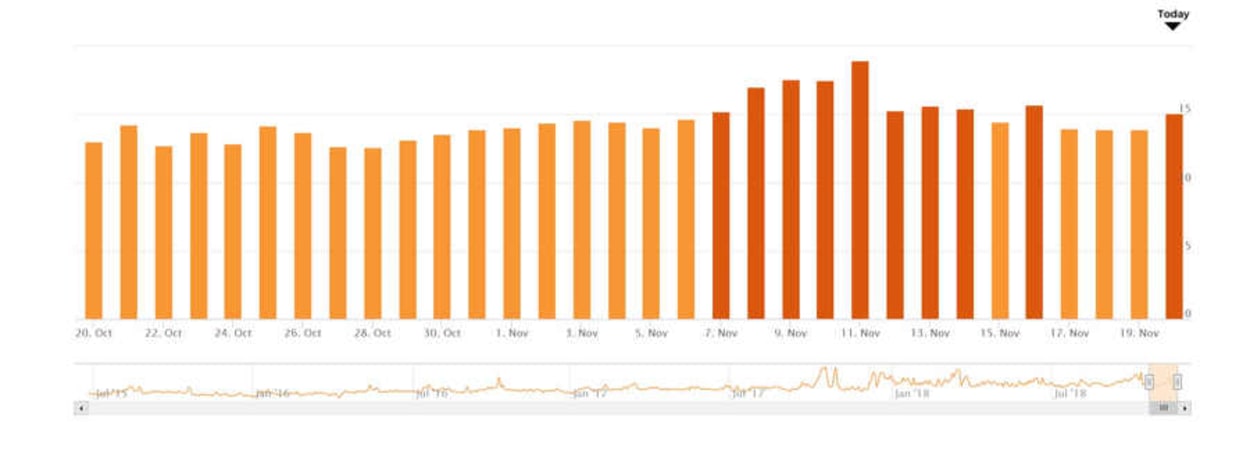
It is clear from the charts that a rather large Google Update was quickly rolled out, so it is not surprising that people are talking about it.
Chatter in the SEO community indicates there was a Google Update
WebMasterWorld:
Let’s take a look at the discussions on WebmasterWorld.
First, let’s see what users had to say about the first update on the 16th:
SEMrush sensor is really high this morning: 8.8 and 9.2 for the UK. Other European databases are similar.
In other news, it seems like the bug in search console regarding indexed images has been fixed. :)
SEMRUSH Sensor Mobile on fire today!
I’m seeing negative changes on one of my websites (not the best one, it deserves it). But the changes are happening.
Now let’s look at the comments regarding the recovery \ rollback:
This is driving me crazy. I have a high volume viral page pinging in and out of the US serps literally every 12 hours. It appears at position 6, then it disappears again a few hours later, usually during peak traffic time.
I had a similar thing happen to one of my pages. It would be #4 for its target keyword, and then completely drop out of the SERPs for 12 hours or so. It didn’t just drop to page 2, 3, 10, whatever. It was literally gone.
Black Hat World:
Let’s take a look at the discussions on Black Hat World.
First, let’s see what users had to say about the initial update on the 16th:
Was first page for hundreds of terms. Lost about 85-90% of our Google traffic. Our website hits everything in their guidelines. Under 2 second load time all pages. Mobile responsive. Not over optimized or keyword stuffed. Content has visible author. Contact and about page easy to see. Privacy and terms easy to see. Cookie opt in. Thorough and accurate content that links to appropriate pubmed studies. 1200+ referring domains. All whitehat links on real websites.
Now let’s look at the comments regarding the recovery \ rollback:
Rankings have just gone back to what they were before these updates again. Wonder how long it will last this time.
For me I think this update has a lot of impact but from my observation I do think it’s a lot about users intent.
I think some of the keywords may contain many user intent and many times google just decided to rank on another intent that is not ours. But for you to rank for multiple kws on page one and lost 85-90% ranking….that’s really weird.
This comment is quite interesting. There is an ongoing train of thought that Google is getting better at deciphering users’ intent.
For example, a page about Holidays might to well for a query “Holidays for sale” if it has holidays for sale. In contrast, a query “Holiday ideas” will reveal blog type pages for people looking for inspiration.
If you are trying to rank for specific keywords, then think about what people want when searching using those keywords. Are you giving them what they want? If not, then you may find your rankings will fall.
Another interesting comment below indicates that the fluctuations may not be over:
For a few days my ranking returned to normal, but started to see weird results again since yesterday or so. My main page disappeared and some random page which I deleted 10 days ago is ranking for my main money keyword.
Social Media:
The only mention we could find was a tweet alerting Barry Schwartz @ Serountable to the update:
Noticed huge drop in organic traffic of all my clients from industries like finance, healthcare, travel etc.
— Ankit Srivastava (@VaranasiBlogger) November 16, 2018
Any update is happening or any bug in @googleanalytics tracking (as i didn't notice any ranking drop) ?
Please udate@rustybrick@dannysullivan
This seems to imply that it is not limited to any one sector.
Who does the update affect?
Among the larger websites, Social Media and directory sites seem to have taken a relatively massive hit, with many news-based websites benefiting. There are a couple of outliers, such as Youtube and Wikipedia, but regarding their overall percentage, the impact is not that great.
Let’s take a look at the winners and losers visibility chart at Searchmetrics. The screenshot below only shows the top 10, but my commentary looks at the top 30 winners and losers:
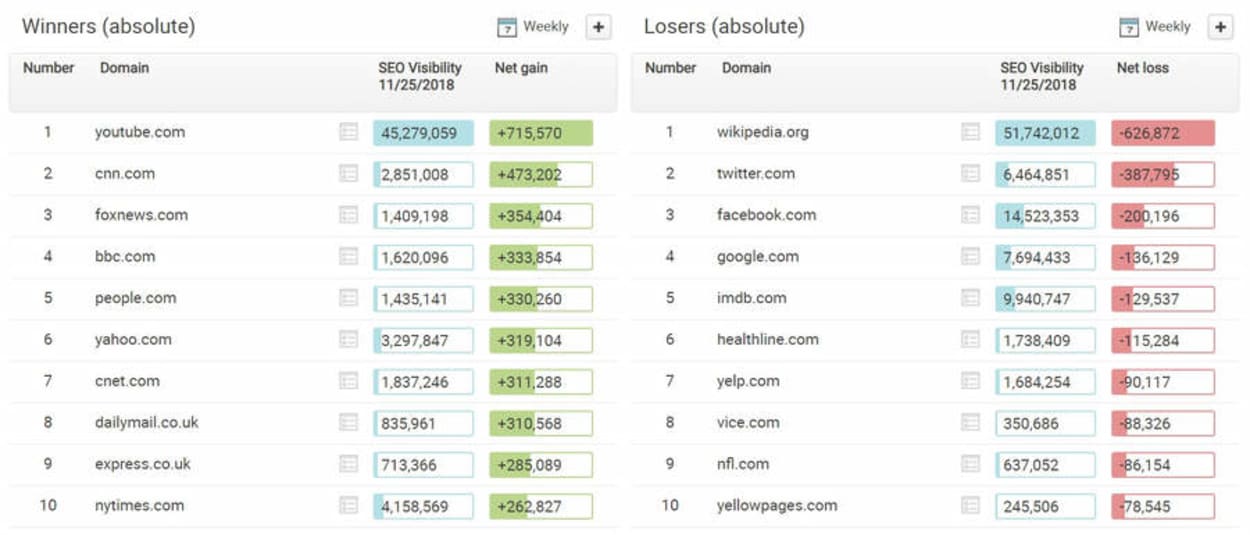
Social media and directory sites have been the main losers of this update. On a positive side, news-related sites have seen some decent improvements.
I think the data is quite telling.
There have been three significant updates this year; March, August, November. The three things that all have in common are Main Content Quality, E-A-T, and intent. It is more than likely that this update seeks to evolve the principles introduced in those updates.
Quality Raters Guidelines, and what Google is looking for
The E-A-T update, meaning Expertise, Authority, and Trust, sought to introduce algorithms that identified the highest quality of pages. Much of the detail on what the update was looking for was introduced in the Quality Raters Guidelines. You can find the document here with the relevant section starting on page 24.
For a high-quality page, Google wants to see the following:
- Very high level of Expertise, Authoritativeness, and Trustworthiness (E-A-T)
- A very satisfying amount of high or highest quality Main Content.
- Very positive website reputation for a website that is responsible for the Main Content on the page. Very positive reputation of the creator of the Main Content, if different from that of the website.
Example 1: Health Sites
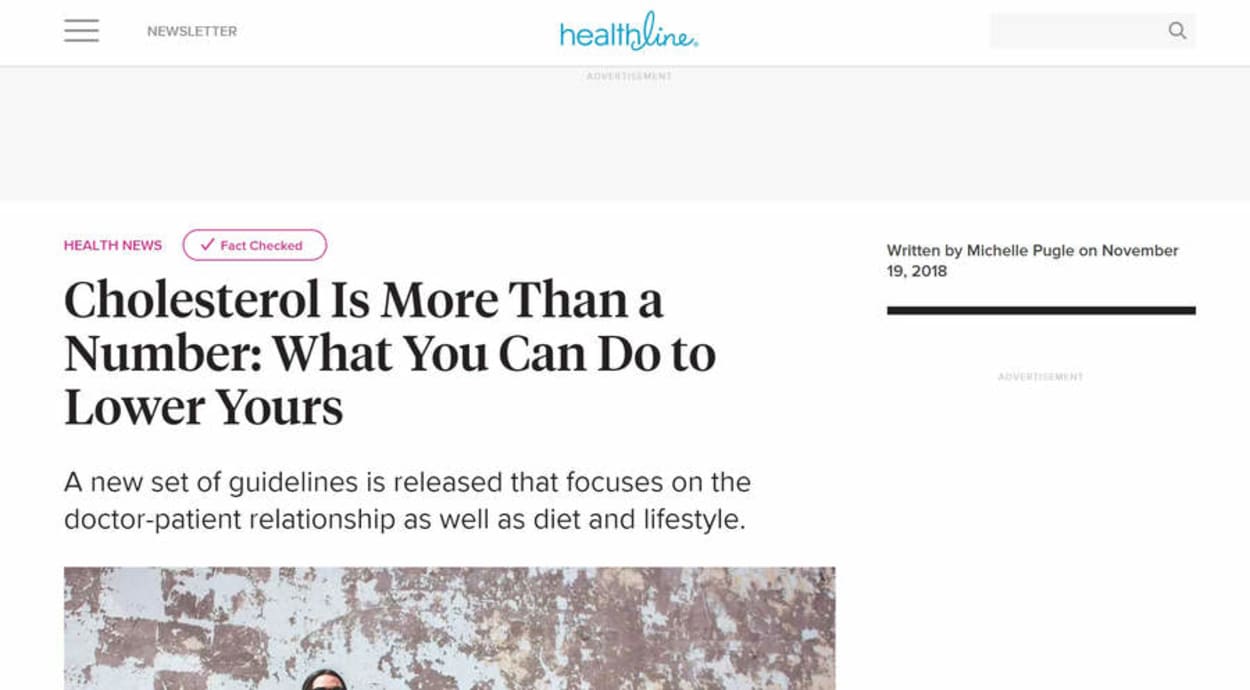
For example, a web page on a health issue is much more relevant if you know a doctor has written it.
How would a user know if this was the case? It would have a clearly defined author bio, an about \ author \ bio page highlighting the doctor qualifications.
What would you rather read? A health article written by an anonymous writer, or by a Doctor. This is the whole point of the E-A-T Google update.
Example 2: Directory Sites
Let’s take another example. Let’s say you have a directory site (see the relevance?), and that directory site does not have a positive reputation. For whatever reason, the reviews on that site do not match reviews being left on Google Reviews, or Facebook. There may be something fishy going on, and this is at the heart of trust. Can you trust that resource?
Let’s take two of the directory sites that have lost rankings:
- Yelp
- Yellowpages.com
If you search “Yelp Review,” or “Yellowpages.com Review,” the results are not favorable for either company.
Trustpilot, for example, gives Yelp just a rating of 2.4 out of 10. The Yellow Pages search results show a video saying it is a scam, and articles detailing how to get suspicious reviews removed.
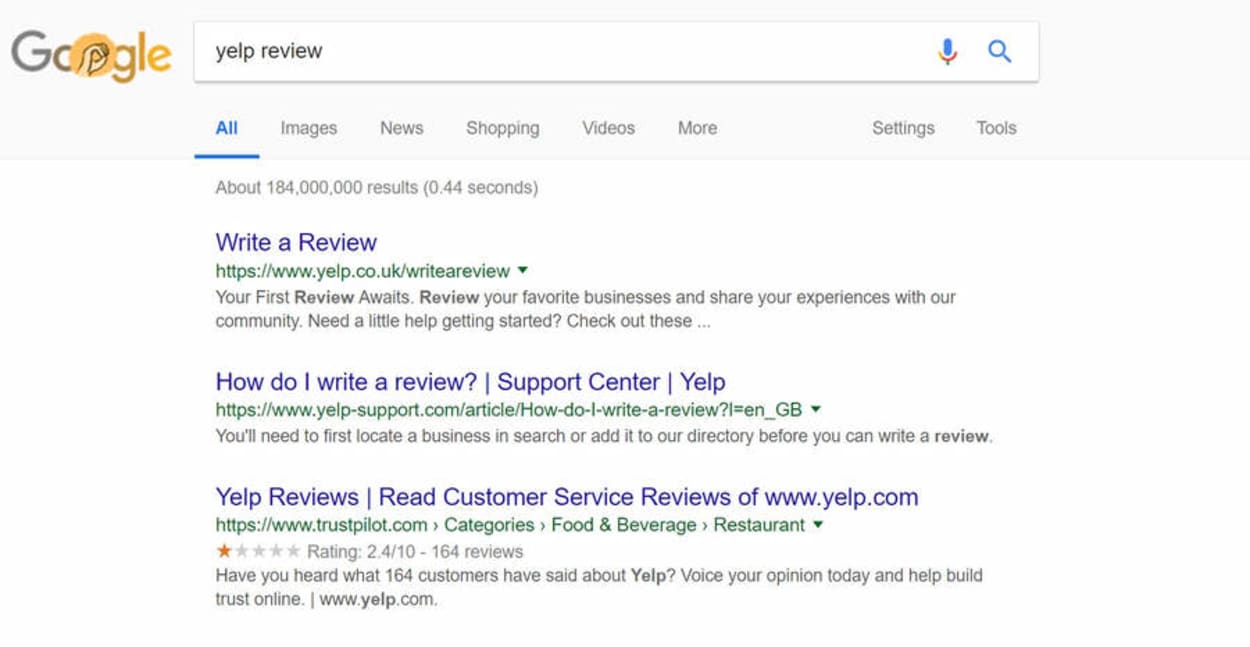
Equally, the Main content quality on these sites is quite low. Yellowpages do not have a particularly good UI, and the directory pages usually have a block of text without paragraph formatting for the entries making it difficult to read.
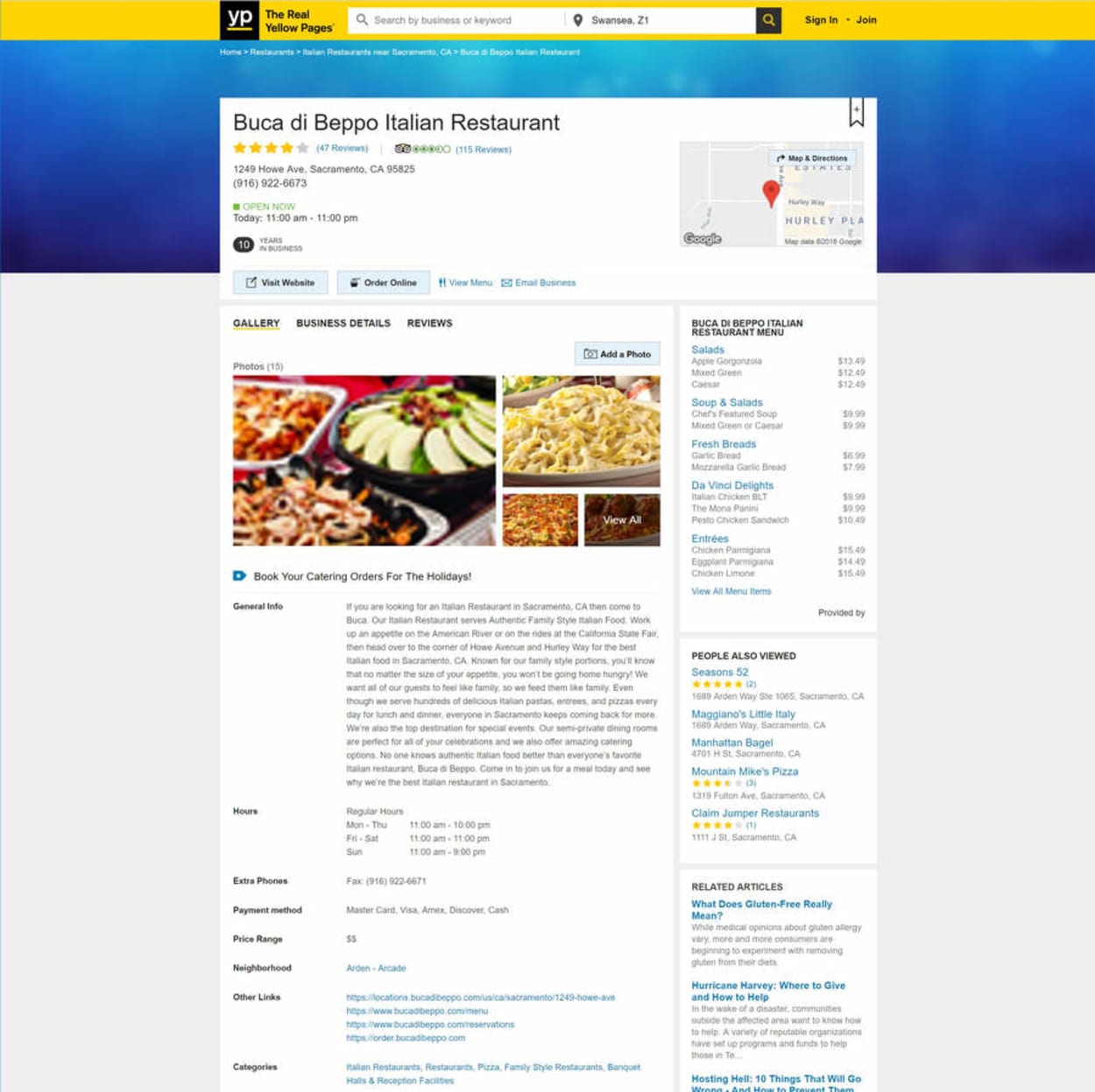 Example 3: Intent
Example 3: Intent
What about intent? Let’s take the search query “Brexit.” What is my intention? Google is trying hard to provide the user with the information they want.
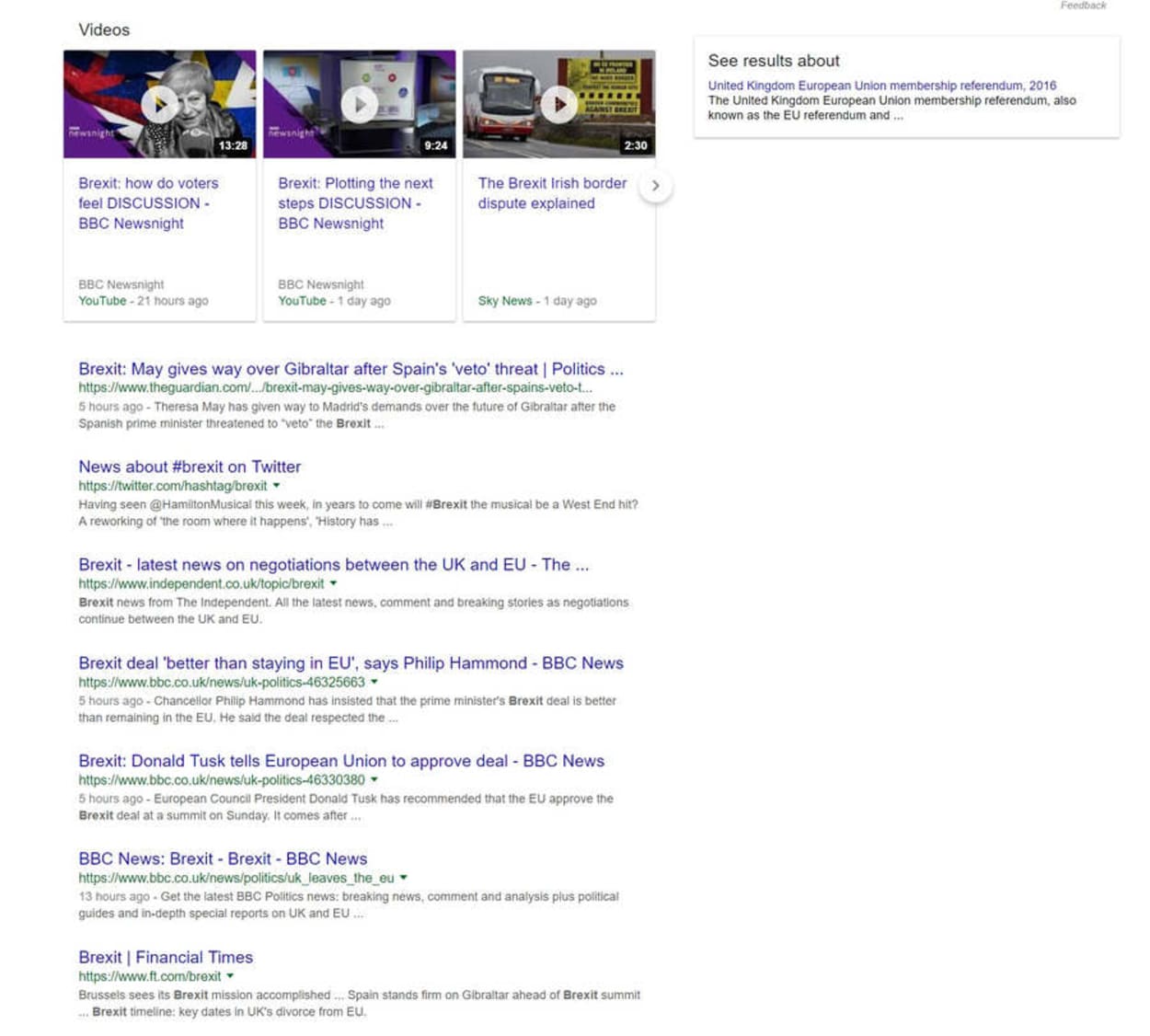
In the UK, a user typically wants the latest news because it is more relevant. You, therefore, see more news-related posts from British tabloids.
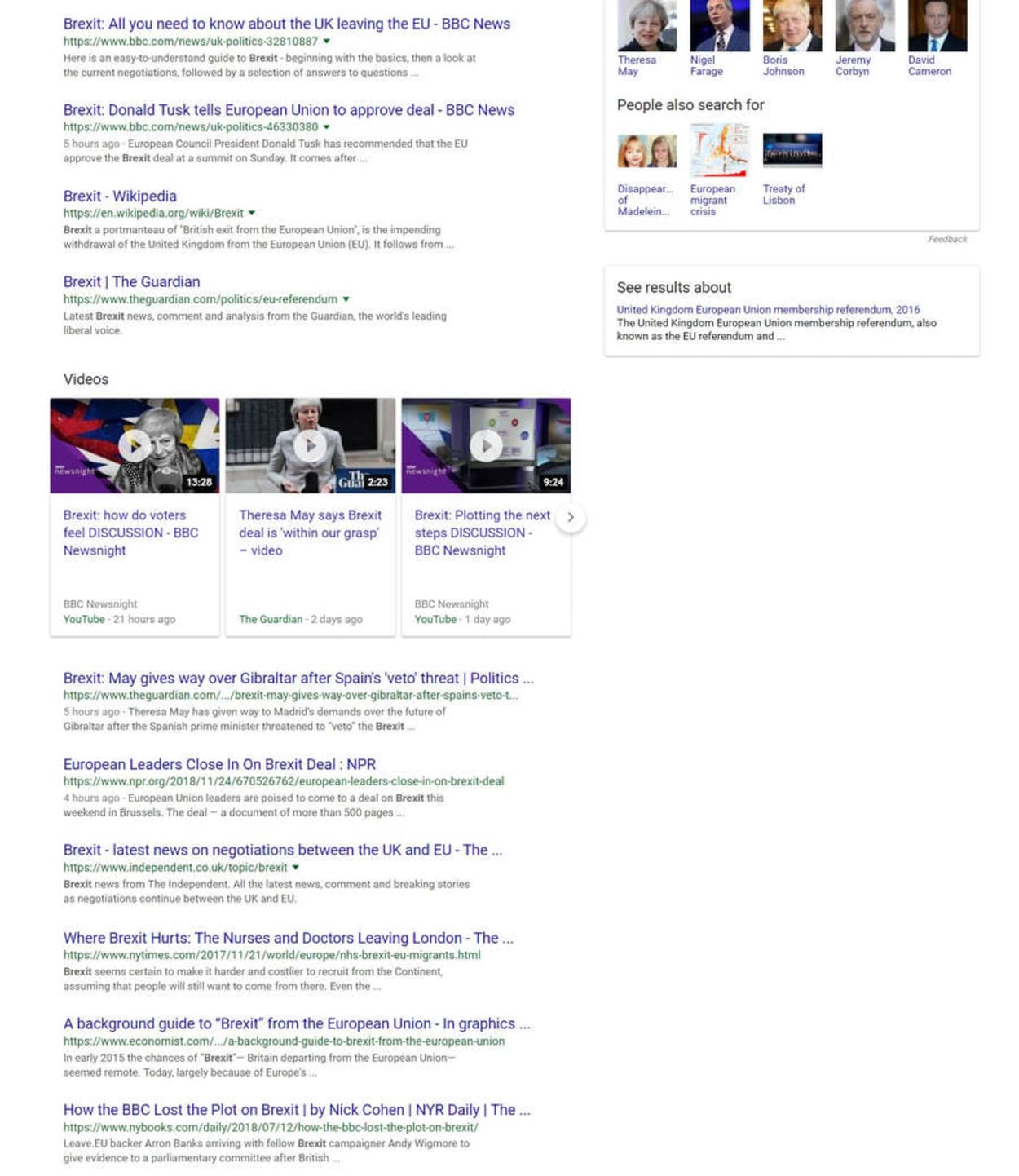
In the US, an overview, or more in-depth articles may be relevant. You still get a few news articles, but they include some US tabloids. Also, Google is more in-depth overview-type articles, such as Wikipedia.
But you get the point. Google is getting better at identifying the users’ intent.
If I had to bet money on it, based on the type of sites that were hit, and those that improved, this latest update targets one or more of the following: Intent, Main Content Quality, and E-A-T.
If you have been affected by this update, there is a good chance that you may have already started to see some reduced traffic since April. Check your Google Search Console to see if traffic started decreasing from around April 2018 to find out. This would only reaffirm my hypothesis.
What to do if your rankings have dropped
First of all, I highly recommend you read the sections of the Google Quality Raters Guidelines related to Content Quality and E-A-T, that I linked above.
It has some excellent examples of what constitutes a high level of quality of Main Content, and E-A-T, and is an excellent place to start when trying to understand what Google wants.
Once you have read the guidelines, I recommend taking a step back and thinking about the type and quality of content you are producing. You can then adapt your strategy accordingly.
Also, I recommend doing a technical audit. It may take some months to improve your existing content and undertake a technical SEO audit. But don’t forget to start adding that Very High-Quality Main Content as soon as possible too.
